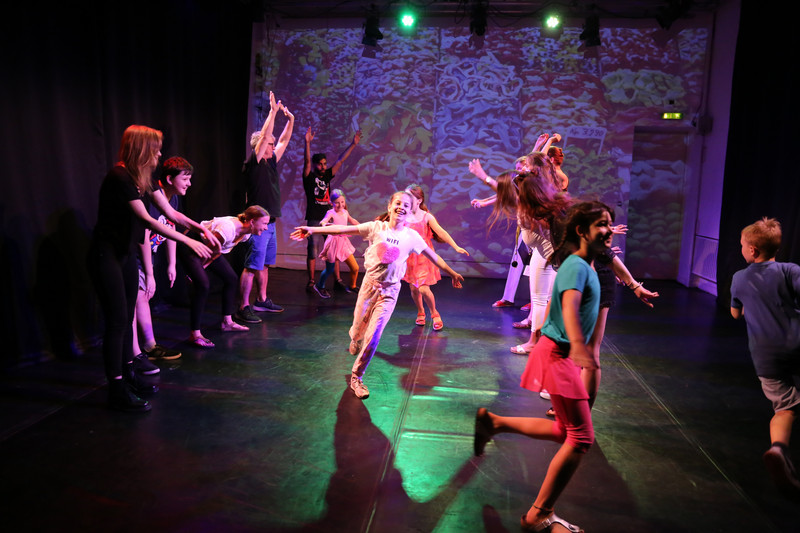Be the Director of Your Own Life! Encourages ACT Initiative in Berlin

Every individual has the ability to develop ideas and think in new directions. At the moment, however, the ideas of many children – especially socially disadvantaged children and young people – lie fallow or are seen as disruptive. With recognition, communication, and participation as well as a common project goal, ACT e.V. empowers these young people to make their potential visible and fruitful, on and off the stage. The organization’s aim is to support joy in learning and to encourage children and young people to more actively participate in society. A key factor is offering instruction that is a benefit to all, and where no one is bored or discouraged.
Maike Plath spent 17 years in research – 13 of those at a secondary school in Berlin-Neukölln – and learned a great deal from her students. Her pedagogical approach, which she developed cooperatively with her students, is visible in the name of her organization ACT, whose letters stand (in German) for recognition, communication, and participation. The former teacher of German and Theater gave up her status as a government-employed teacher in 2013 and is now a board member of ACT. Six years later, there are over 20 team members working with the group; following Plath’s concept, they are active in schools and cultural initiatives all over Berlin. In their theater and film presentations addressing up to date social topics, the young people demonstrate on the stage what they are capable of and how they perceive the world.
With the ACT_Lab, which is also supported by the Software AG Foundation (SAGST), the organization also works with young people who are frustrated with school or have turned their backs on it. With ACT, these students rediscover an anxiety-free path to learning where they can rediscover academic material in new ways, train their communication skills, and discover their own strengths. “This helps them to discover what they need in order to once again be the directors of their own lives,” SAGST project manager Elke Rahmann explains.
“For Serhat [name changed], for example,” says Maike Plath, “the theater was something like a mirror. He acted with us in the theater for five years, and as he one day saw an old rehearsal video of himself, he just shook his head and asked: “How did you even put up with me?” Later, he completed his training as a medical care assistant with the highest marks. Today he works at the Berlin Airport and is a highly valued employee with strong intercultural competence.”
